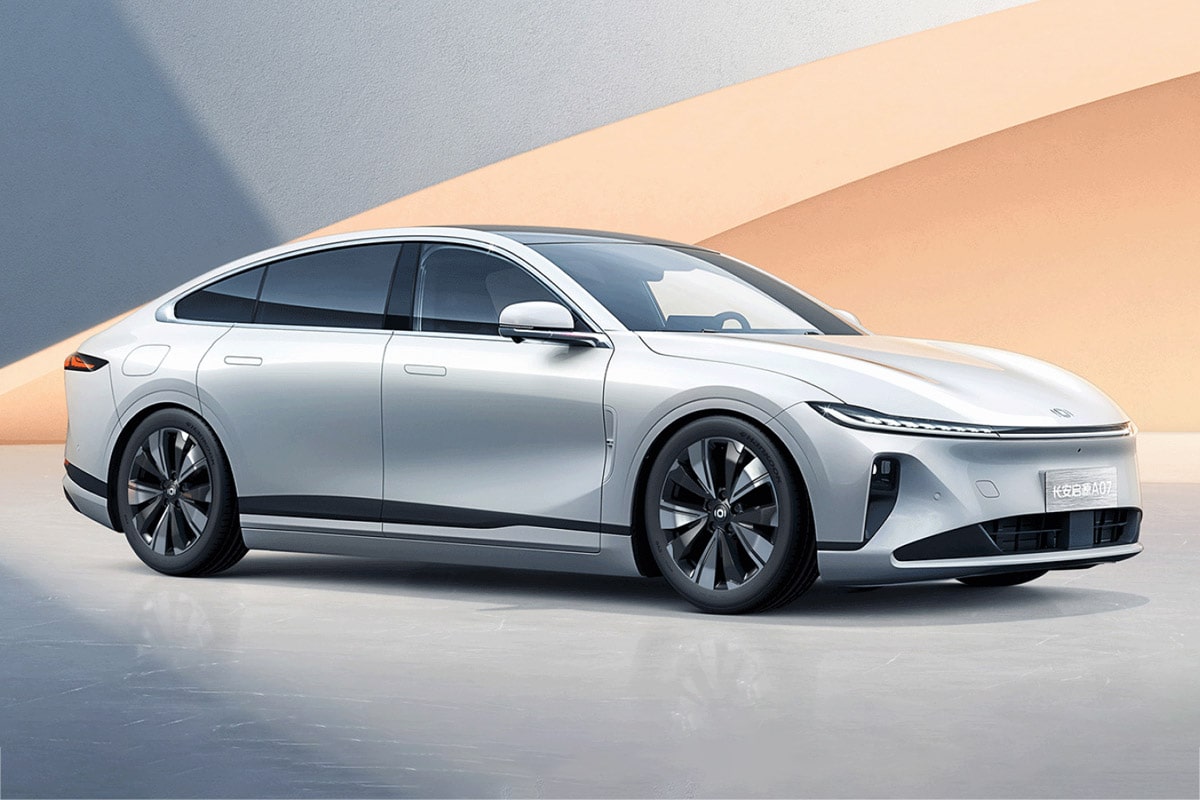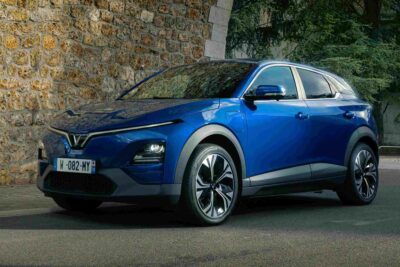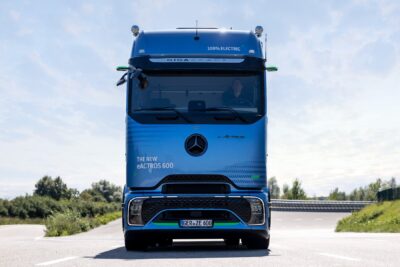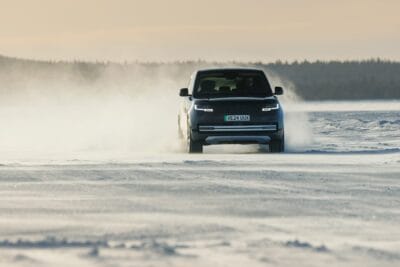Qiyuan launches debut model with the A07
Qiyuan, the new subsidiary of the Chinese manufacturer Changan for electric and hybrid cars introduced about a month ago, has launched sales of its first model. The 4.90-long Qiyuan A07 sedan is offered as a pure BEV at prices starting at 166,900 yuan, which is currently equivalent to about 21,700 euros. For this price, the electric sedan is available with a 190 kW rear-wheel drive and a 58 kWh battery, which is supposed to allow a range of 515 kilometres according to Chinese standards.
As an alternative to the pure BEV version, the model is also available with a hybrid drive: The Qiyuan A07 EREV starts from 155,900 yuan (about 20,300 euros) and combines an electric motor with 160 kW of power with a small 70-kW internal combustion engine and a battery with 28 kWh capacity for up to 200 kilometres of range according to Chinese standards. Qiyuan plans to launch three more models this year called A05, A06, and Q05. The brand aims to reach annual sales of 1.5 million vehicles by 2030 and launch ten products by 2025.
For the launch, the Qiyuan A07 will be offered in two power levels (163 kW and 190 kW) and two battery options (58 kWh and 80 kWh), which should allow ranges of 515 and 710 kilometres, respectively, according to Chinese standards.
As an alternative to the pure BEV version, Qiyuan is also launching the model with a hybrid drive – more precisely, with a range extender: the Qiyuan A07 EREV starts from 155,900 yuan (approx. 20,300 euros) and combines an electric motor with 160 kW output with a small 70 kW combustion engine and a battery with 28 kWh capacity for a range of up to 200 kilometres according to the Chinese test cycle.
Qiyuan plans to introduce three more models called A05, A06, and Q05 this year. Basically, the range will comprise the so-called A, Q and E0 series. Qiyuan is the third brand Changan is launching in the new energy vehicle sector, joining Avatr and Deepal.
The new Changan subsidiary has announced plans to develop ten vehicle models by the end of the decade, while Avatr is taking aim for four and Deepal wants to develop six. Together, the three divisions are expected to sell four million vehicles annually in 2030, with a total of 5 million vehicles sales targeted in 2030. How the three brands will differentiate themselves from each other is not obvious at first glance, as all three focus on electric sedans, with smart car features and advanced connectivity features. The only thing that is clear about Avatr is that the ownership structure differs: Changan is only one of several shareholders.





0 Comments